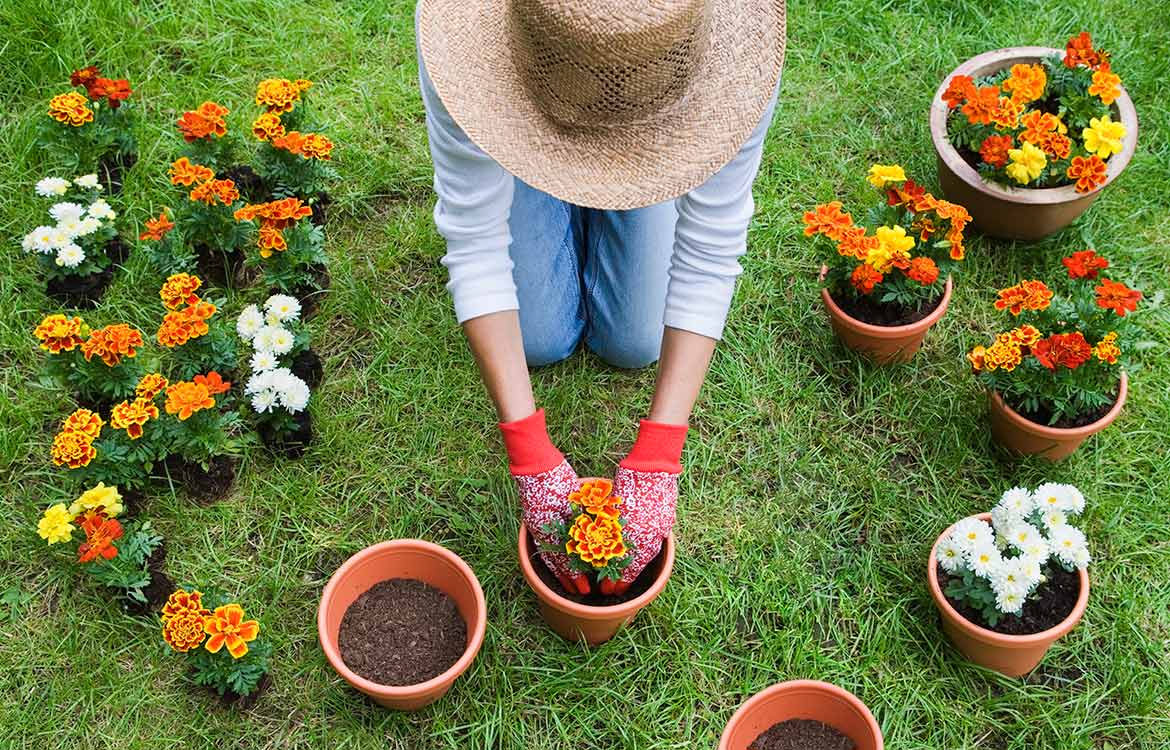Take Steps to Prevent a Heat Injury Before, During and After Gardening

The summer heat can make gardening not only miserable but dangerous. Prolonged exposure to high temperatures can raise the risk for heat injuries such as heat cramps, heat exhaustion and heat stroke. Fortunately, these injuries are preventable. Here are some steps you can take to stay healthy during the dog days of summer.
Before and During Gardening
- Drink plenty of cool water, even if you’re not thirsty. And while gardening in summer heat, drink several eight-ounce glasses of water every hour.
- Wear lightweight, light-colored, loose fitting clothing, sunglasses and a wide-brimmed hat. Apply a sunscreen with SPF 30 about 30 minutes before going outdoors. Reapply as needed.
- Plan your gardening for early morning or early evening when the temperatures tend to be cooler.
- Work at a relaxed pace and take breaks. If you feel you’re getting too hot or breathing heavily, find a shaded area or go indoors.
- Pay attention to the signs and symptoms of heat cramps, heat exhaustion and heat stroke.
Heat Cramps
Heat cramps are painful, intense muscle spasms usually brought on by exercising in hot environments. Heat cramps are associated with dehydration and loss of electrolytes. Cramping can occur anywhere but is most often felt in calves, arms, abdominals and back. If you’re experiencing heat cramps, cool down and rest. Have an electrolyte drink. If possible, gently stretch the cramping muscle groups. Refrain from physical activity for several hours. If you don’t feel relief from cramps within an hour, call your doctor.
Heat Exhaustion
Heat exhaustion is a sign that your body is overheating. It’s usually caused from exposure to extreme heat or performing physical activity in high temperatures. Symptoms usually include heavy sweating, faintness, dizziness, fatigue, weak but rapid pulse, low blood pressure upon standing, muscle cramps, nausea and headache. If you think you’re experiencing heat exhaustion, stop your activity, move to a cooler place, rest with your legs/feet slightly elevated, drink cool water or sports drinks and if possible, sponge cool water on your skin. If the signs and symptoms persist beyond an hour or worsen, contact your doctor. And if you become confused or agitated, lose consciousness or are unable to drink, seek medical attention immediately.
Heatstroke
If your body continues overheating, you risk heatstroke — the most serious form of heat injury. Symptoms include a very high body temperature (104° F using a rectal thermometer), nausea or vomiting, flushed skin, rapid heart rate, rapid breathing, headache and altered mental state. If you (or someone you know) has symptoms of heatstroke, get into the shade or indoors. Seek immediate medical attention. While you’re waiting for help to arrive, help the body cool down by sponging cool water on it and placing ice packs on the head, neck, under arms and groin. Untreated heatstroke can lead to organ damage and possibly death.
After Gardening
Even if you’re not dealing with a heat injury, cool down with a cool shower. And drink plenty of fluids, including sports drinks containing electrolytes to replace salts and minerals lost while sweating.
If you’re concerned about heat exposure; talk to your doctor, they can offer advice to help you prevent a heat injury. And if you don’t have a doctor, consider partnering with an MDVIP-affiliated physician. They have the time and resources to help you develop a personalized wellness program that includes outdoor safety. Find a physician near you and begin your partnership in health »


